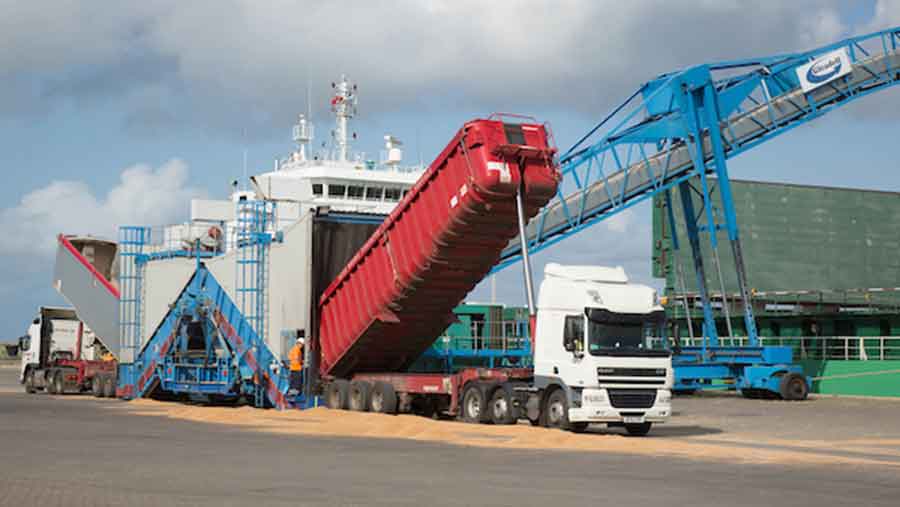Barley price gains, wheat stays steady
 © Tim Scrivener
© Tim Scrivener Feed barley prices saw bigger gains than wheat in the week to Friday (18 November).
An average rise of almost £3/t put feed barley at £115.50/t with prices varying from a low of £109/t in Kent and East Sussex to £120/t in Yorkshire and the North-East.
Wheat put on just £1/t in the week to average £131.35/t ex-farm. Around the regions it ranged between £124/t in North-East Scotland to £138/t in Yorkshire.
See also: Britain’s Brexit bubble bucks global grain trend
UK wheat exports between July and September were boosted by the weak pound to an estimated 711,000t, the highest for this period since 2010-11.
There is relatively little wheat left to ship in the remaining months of the season so supplies could get tight if we have a late or poor harvest in 2017.
Milling wheat prices were on a standstill this week, with full-spec breadmaking wheat worth almost £139/t. This makes the premium just about £9/t, a four-year low.
A weak euro has brought France back into the wheat export business, while a stronger US dollar has left the US less competitive, putting further pressure on prices there.
Oilseed rape firm
Oilseed rape prices also stood still in the past week. Overall, domestic and export interest remains strong, while slow farmer selling and concerns over 2017 crop size are keeping prices firm.
UK rapeseed prices have lost about £10/t compared with recent highs but spot crushing demand is quiet because crush margins are unenticing. The spot price on Friday (18 November) averaged £339.70/t ex-farm and ranged from £330/t-£337/t, with very little carry in most regions.
While Germany is estimated to have planted 1.5% more oilseed rape this year (total 1.35m ha), the UK’s rapeseed area is estimated by grower co-op United Oilseeds Marketing to fall 8.25%, taking into account the area of crop lost to flea beetle and drought.
